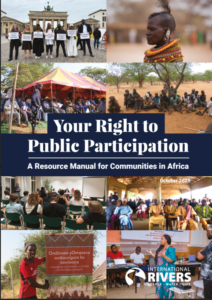Background
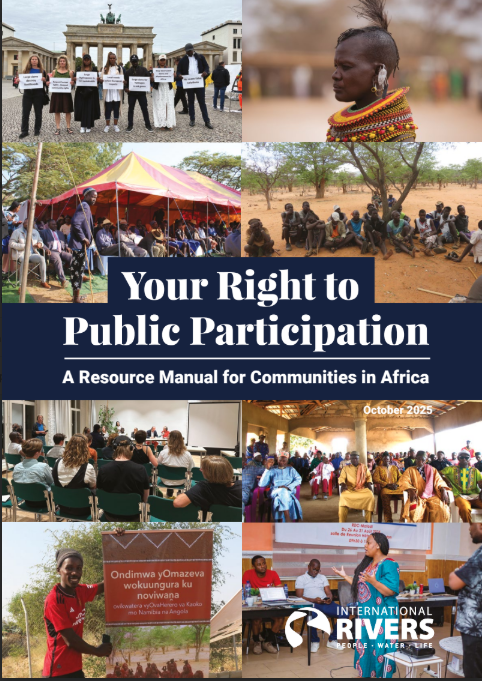
The International Rivers Africa Program developed the Public Participation Resource Manual and the Public Participation Curriculum for Communities in Africa. These are practical resources for African communities, particularly indigenous people, women, farmers, fisher folk, and other traditionally marginalized groups confronting the negative impacts of large-scale development projects, like hydroelectric dams. The resources emphasize that sustainable development must improve lives without causing harm, and it centers on the human right to participate in decisions that affect one’s land, resources, and livelihoods. At their core is the principle of Free, Prior, and Informed Consent (FPIC), which requires communities be fully informed and voluntarily agree to any development project before it begins.
The manual and curriculum offer practical, community-focused training guides designed to strengthen grassroots power across Africa. They outline relevant international and regional legal frameworks, including the UN Declaration on the Rights of Indigenous Peoples, the African Charter on Human and Peoples’ Rights, and the International Labour Organization’s Convention 169. They also explain how communities can use Independent Accountability Mechanisms (IAMs) linked to development finance institutions like the World Bank and the African Development Bank to challenge harmful projects. Case studies from the Epupa Dam in Namibia and the Lilongwe Water Project in Malawi demonstrate how affected communities have used advocacy, legal tools, and alliances with civil society groups to assert their rights and influence project outcomes.
Finally, the manual and curriculum offer practical tools for organizing community-led campaigns, including a step-by-step campaign planning checklist, risk assessments, and advocacy strategies. It stresses participation, especially of women and youth, and provides links to additional resources on rights, security for human rights defenders, among others. By equipping communities with knowledge and tools, the manual and curriculum empower them to advocate for development that upholds transparency, human rights, and protects the environment.
A glance at the highlights of the materials:
The tools present key insights, detailed analysis, and real-world examples to inform, inspire, and guide action, including:
- What “Free, Prior and Informed Consent (FPIC)” really means
- The laws that protect your rights — UNDRIP, ILO 169, and the African Charter
- How to use accountability tools from banks like the World Bank and AfDB
- Real case studies and step-by-step campaign tools
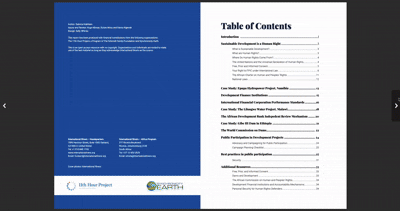
Materials available to download
Community Training using the Public Participation Resources
With partners, we have conducted community training in Matadi, Democratic Republic of Congo, in Opuwo, Namibia and in Kindia, Guinea. We focused on understanding development from a community perspective, considered legal frameworks for public participation and rights to FPIC in international law and its application in the various jurisdictions, laws on land ownership and rights, conducted community resource and stakeholder mapping, unpacked power and decision-making, identified alliances, and analysed legal recourse and campaigning strategies which enabled communities to develop their advocacy action plans and the create community structures to strengthen advocacy and community action.
The workshops highlighted that true development must be community-driven, rights-based, and sustainable.
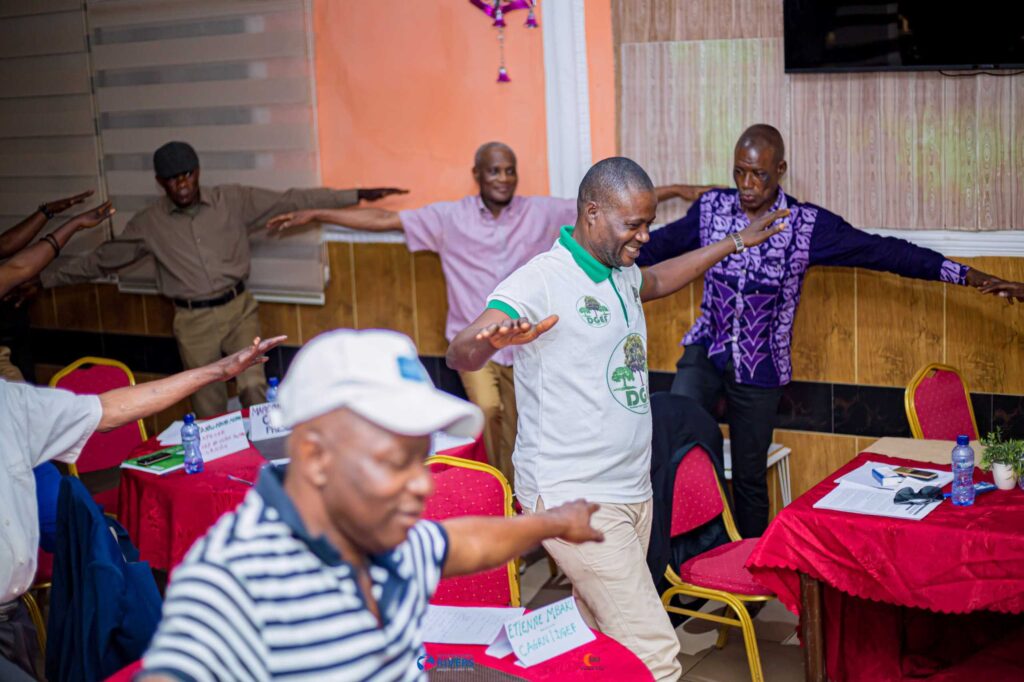
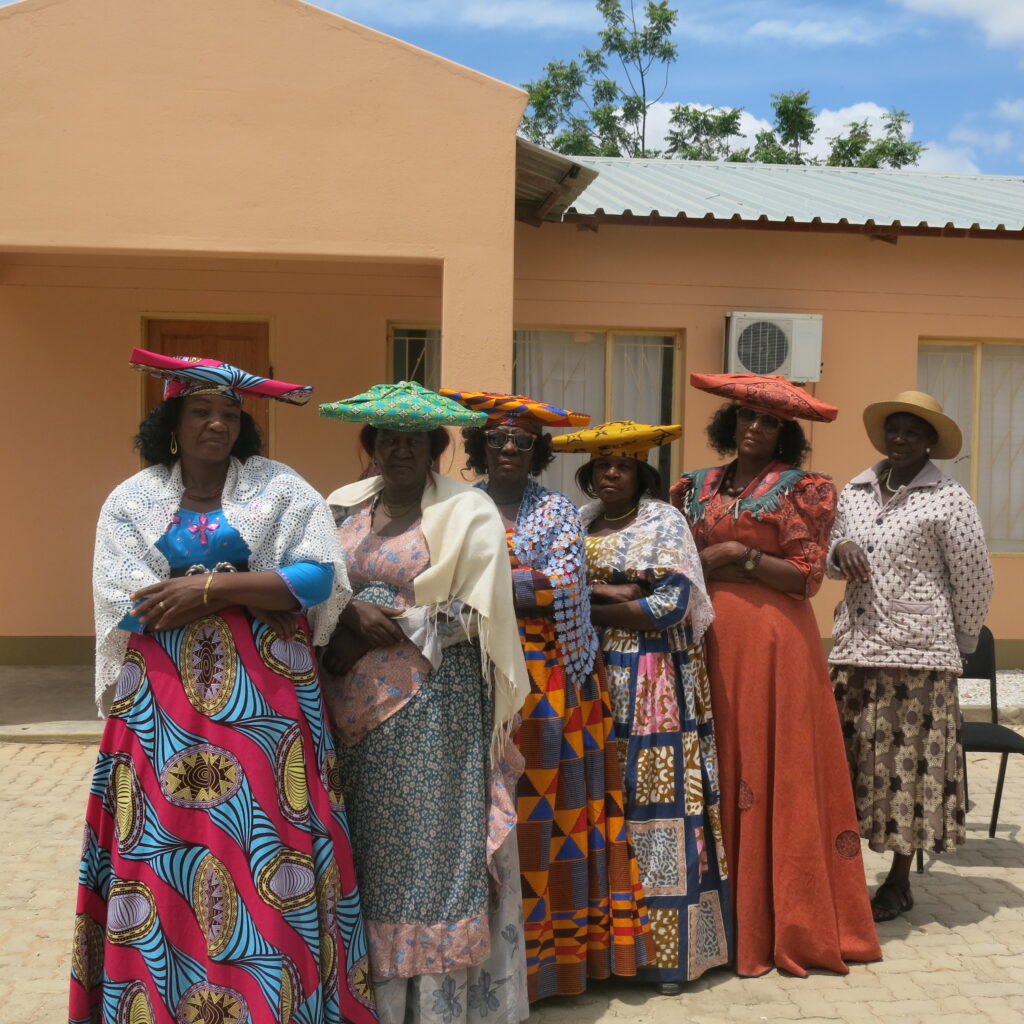
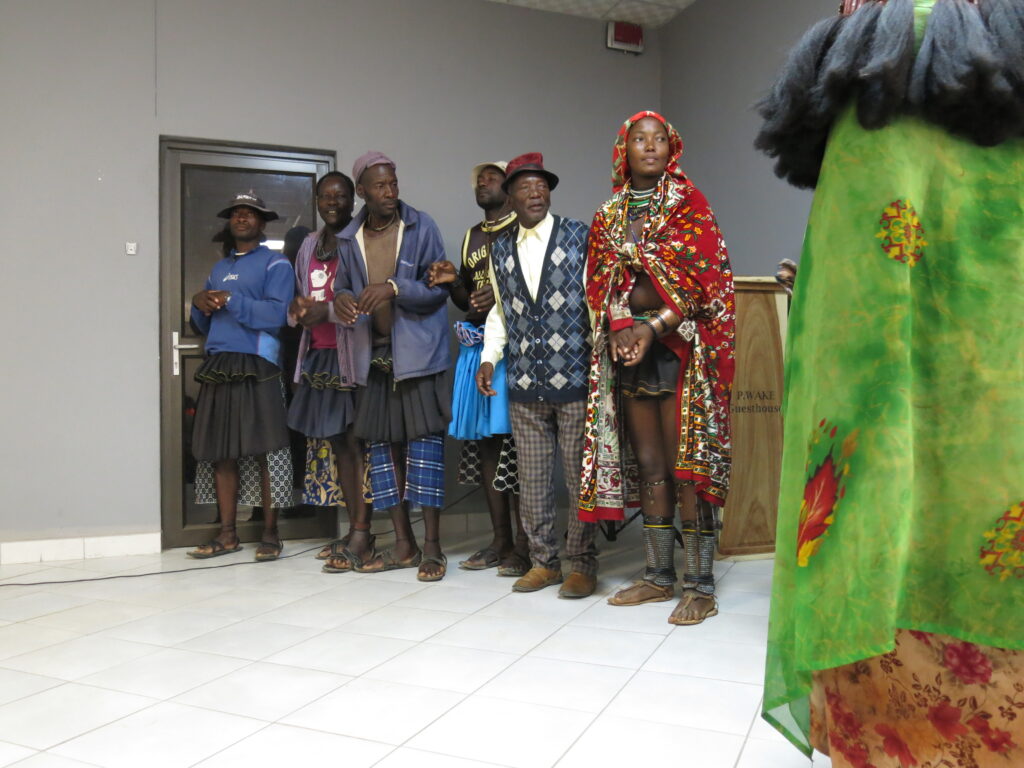
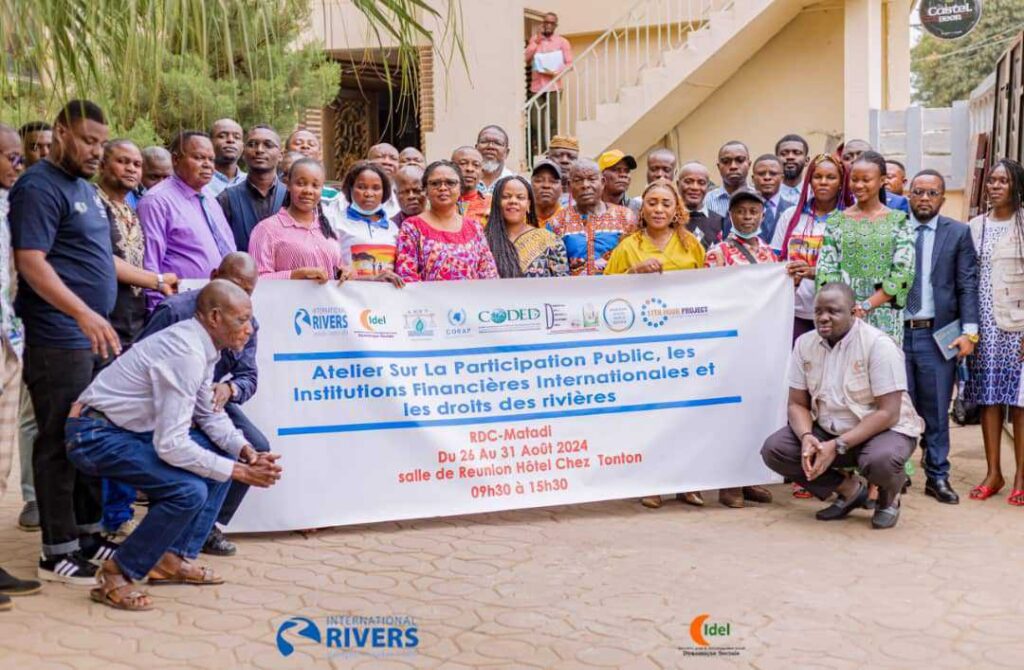
“These resources, created by International Rivers are designed to put knowledge and power back into the hands of riverine communities in Africa. Refined through community workshops over a two-year period, these tools have provided, and will continue to provide communities with simple, practical guidance on how to participate in decisions that affect their land, rivers, and livelihoods. They have also deepened community understanding of Free, Prior and Informed Consent (FPIC), empowering people to stand up for their rights and to shape development to benefits both people and the environment..”
Siziwe Mota, Africa Program Director at International Rivers
Have questions about this work or how you can get involved?
We’d love to hear from you.
Special thanks to The 11th Hour Project, a Program of The Schmidt Family Foundation and Synchronicity Earth for supporting this initiative. © 2025 All rights reserved.

